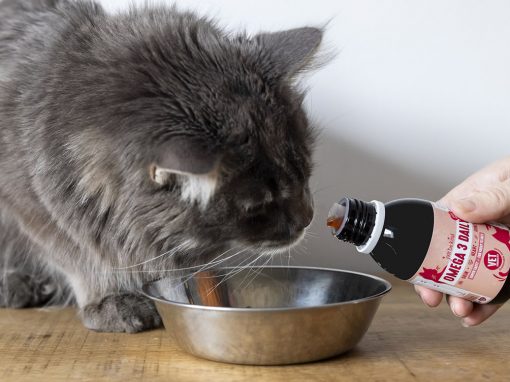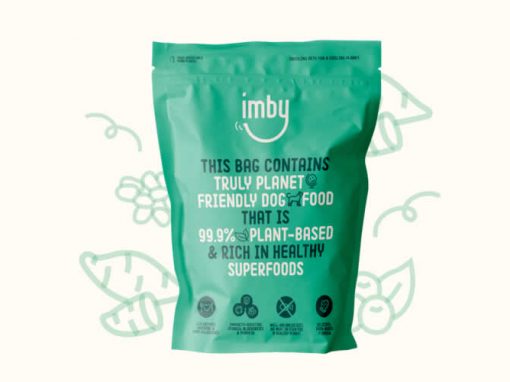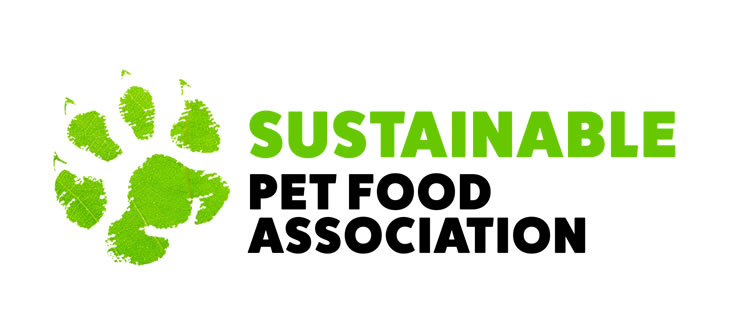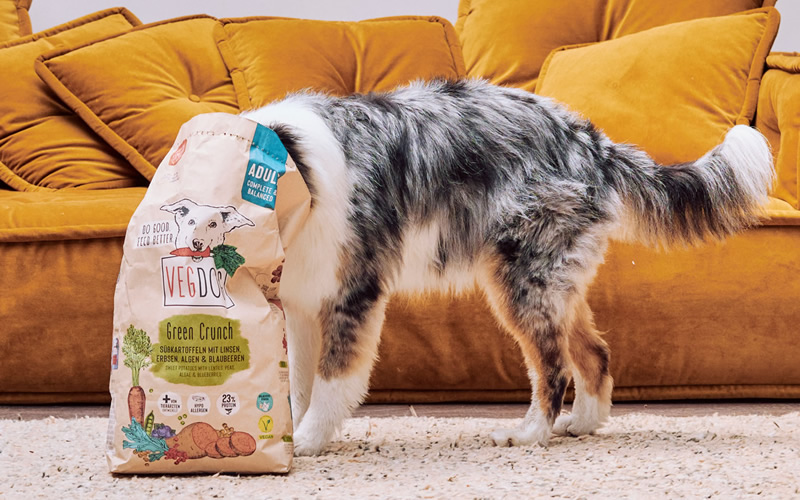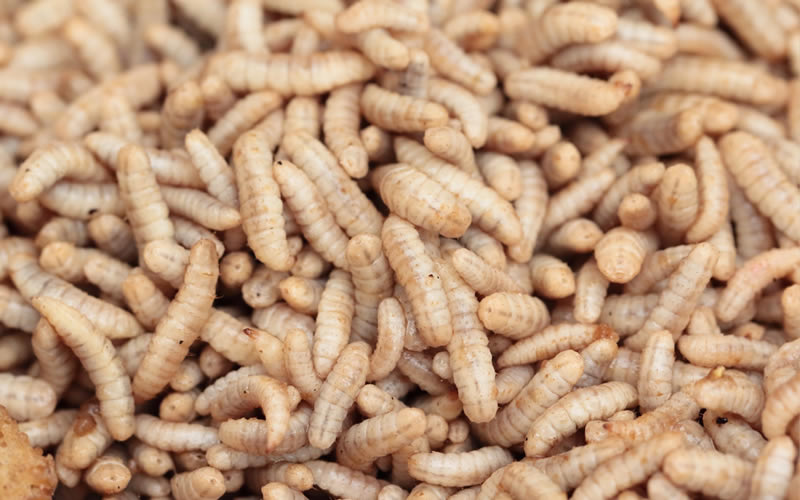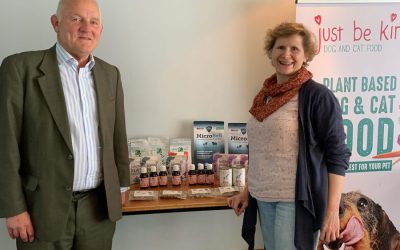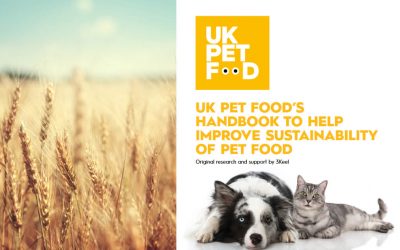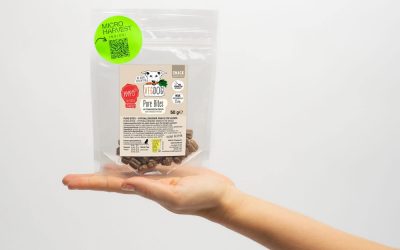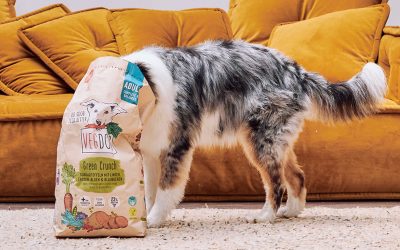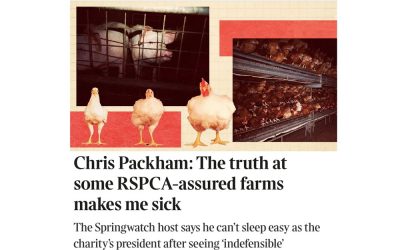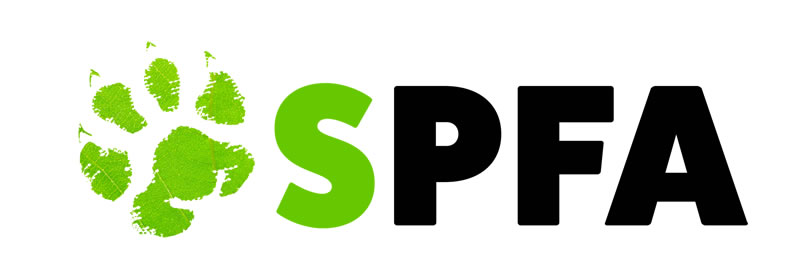We applaud all the new companies looking at alternative protein sources to feed our production animals and our pets. We have chosen not to include insect-based dog food diets in our list of sustainable foods that we recommend for dogs, for the reasons listed below:
Are Insect-Based Diets Hypoallergenic?
For dogs needing an animal protein free diet, the only one that is truly free of all animal proteins, is a vegan dog food diet. Yora insect-based dog food lists chondroitin as one of its ingredients which is sourced primarily from avian cartilage and could impact dogs with an allergy to chicken.

That is why dogs with an intolerance to chicken protein (a common intolerance in dogs advised to eat chicken and rice when their intestines are at their most inflammatory); will react to Yora due to the presence of the chondroitin.
Dogs with the most common allergen that we see – an allergy to house dust mites, have shown to react to the chitin in dog food that uses insect-based foods.
Dogs with an intolerance to genetically modified corn, could react to insect protein made from companies such as Protix that feed their grubs with cornmeal.
Are Insect-Based Diets Truly Palatable?
When we think of the smell of fly larvae, think of what maggots in your bin on a very hot summer’s day smell like…..then yes, the palatability for dogs is good as dogs are drawn to strong smells (even if we find them very offensive!)
It is the owner that has to choose the food however and keep the food in their pockets on walks and this is where plant-based foods with their distinctive herby smells of basil and oregano really top the popularity for owners!
What of the safety of Insect-based vs Plant-based dog foods?
When considering what the fly larvae used in insect-based foods are fed which is not going to be freshly sourced vegetable matter, but rather the waste matter to make it a cost-effective way to produce the insect protein; these waste materials come with the added concerns of mycotoxins and bacteria.
All insect-based protein used in pet food has to undergo stringent ‘detoxification’ prior to being added to the food to ensure that there are no toxicities to dogs and cats that come especially from mycotoxins. These are not present in plant-based foods sourced from fresh ingredients.
Which is more sustainable – insect-based or plant-based pet food?

It was while attending the Glasgow Small Animal Pet Food Symposium in March 2024, that the true cost of insect-based protein was made clear.
Entocycle (now listed on the stock exchange) attended the Symposium to talk about insect-based pet proteins after Sustainable Pet Food Association and raw vet . They are one of the biggest producers of fly larvae protein for the pet food market. What a surprise after they showed us the dangers of the use of meat in pet food accounting for so much global biodiversity loss due to intensive farming….but went on to tell us that the fly larvae intensively farmed by them for their protein, were fed from palm kernels from the palm oil industry!
Just as the use of animal byproducts in pet food encourages the production of more animals to be intensively farmed as every part of the animal is given a financial value; so too will the use of palm kernels encourage yet more extensive palm oil production and even further dangerous biodiversity loss.
Far more sustainable, is this company in Poland using waste from the mushroom industry to feed insects for use in pet food.
What is more cost-effective – Insect Protein or Plant Protein Dog Food?
Considering that the insect-based protein has to undergo ‘purification’ of all bacteria and mycotoxins, as well as be processed to ensure not just safety for pets but also palatability, there is a difference in price with many of the insect-based products being more expensive than their plant-based options due to extra electricity needs.
Which is more environmentally friendly – Insect Protein or Plant Protein Dog Food?
A UK trade association challenged a recent life cycle assessment that highlighted conditional environmental benefits of insect protein compared to soyabeasn and fish meal. Read further here showing that insect protein is not as environmentally friendly as we think!
What of the sustainability of plant-based diets?
Prof Knight’s latest study published in the journal Frontiers in Sustainable Food Systems has concluded that feeding pets a nutritionally sound vegan diet is a “significant climate change mitigation strategy which warrants immediate implementation”. This study notes the need for governments and the media to raise awareness immediately of the benefits of plant-based pet foods.
In wealthy countries with high rates of pet ownership, the benefits of shifting dogs away from meat-based diets are said to be equivalent to between a quarter and a third of the environmental benefits achievable through human dietary change – incredible statistics backed by robust scientific evidence!
What about digestibility?
When novel protein bacterial fermentation entered the market in 2025, it ushered in a whole new era of sustainability and health for our pets. It is the very first sustainable ingredient added to dog foods that has undergone rigorous feeding trials showing that it is not only healthy for dogs, but it also enhances the gut health and gut microbiome as shown in these studies.
This bacterial fermentation protein from Feedkind also has a far greater digestibility than black soldier fly used in most insect-based foods as shown in the image below.
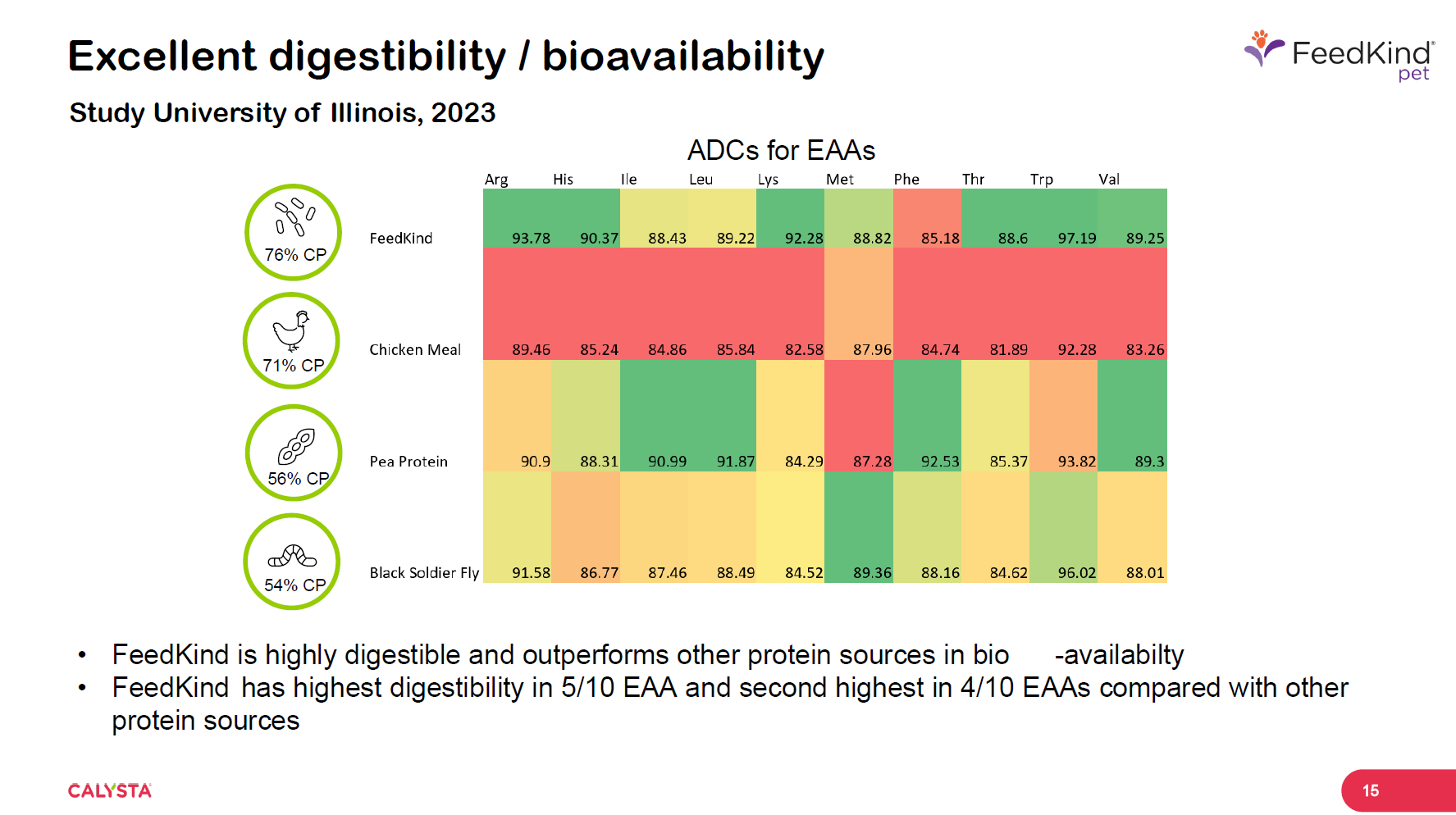
Studies claim positivity with alternative pet diets
Many owners willing to consider alternative pet diets, studies claim with a high proportion of cat and dog owners now prepared to explore alternative, more sustainable diet options
Avian Flu Pandemic Risk from Raw Feeding
The APHA (Animal Plant and Health Agency.gov.uk) sends anyone interested in environmental matters, emails about looming threats. As a vet, this is what I have received recently in my email inbox - In my inbox yesterday 11th November - An Avian Influenza Prevention...
Raw dog and cat food fuelling spread of antibiotic-resistant bacteria
The very real and always present danger of this latest study yet again finding antibiotic-resistant bacteria in raw commercial cat foods!
UK Petfoods MUST Keep Up!
Using animal byproducts in meat and fish-based pet foods is NOT sustainable!
Cats dying after eating Avian-Influenza-contaminated raw pet food!
Does vegan cat food provide the solution?
Fermented Protein Pet Food – the Future?
Is precision fermentation our future way to feed not only our pets, but ourselves too? Yes it most certainly is!
Could our dogs or cats trigger an avian influenza pandemic?
As our memories of the last COVID 19 disappear, the potential for another pandemic looms and pets could play a role in transmitting it
Using microbial protein for the very first time in dog treats!
This first-of-its-kind protein is derived from bacteria that have been consumed by humans for centuries in foods such as kimchi, kefir, and sauerkraut
BVA says it is possible to feed dogs plant-based
The British Veterinary Association (BVA) has ended its opposition to (nutritionally-sound) vegan diets for dogs
The truth about ‘RSPCA Assured’ farms
The footage obtained from these farms, including distressing images of decomposing pigs, dying chicks, and salmon with missing eyes, is simply indefensible
The Great Protein Debate – Beef or Beans?
Dr Sue Paterson, RCVS President and Senior Vice President of the European Society of Veterinary Dermatologists interviews Dr Arielle Griffiths about Sustainable Pet Foods
University of Liverpool Vegan Dog Food Study
Prof Alex German holds the position of Royal Canin Professor of Small Animal Medicine at the University of Liverpool
Recommended sustainable pet foods
